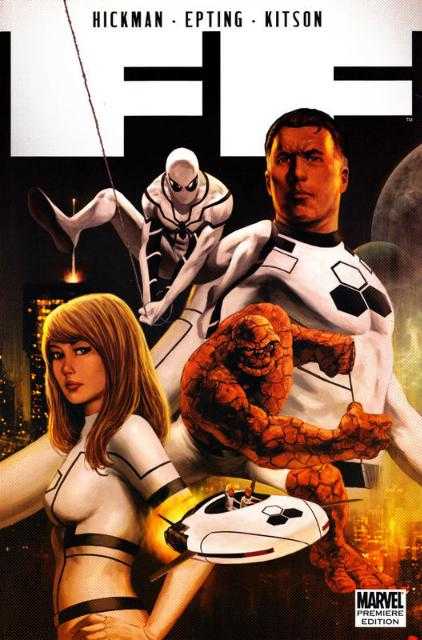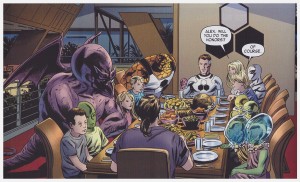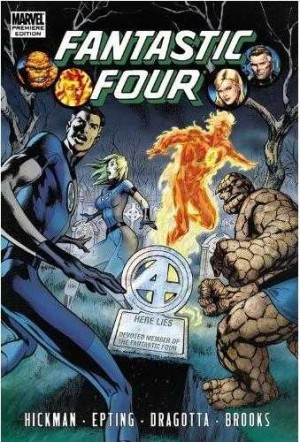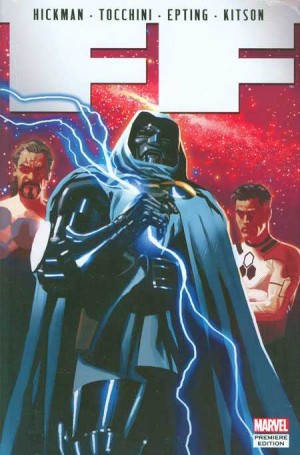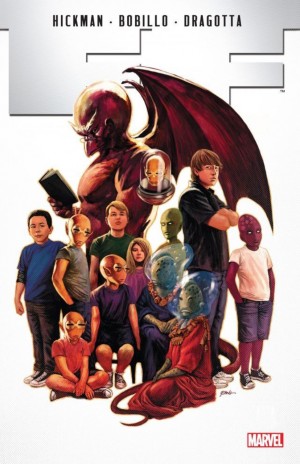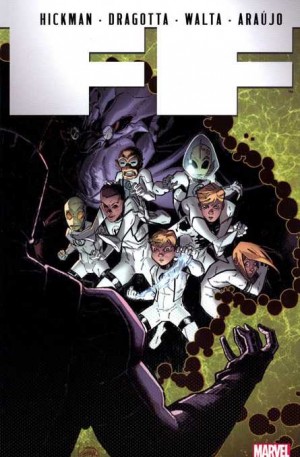Review by Frank Plowright
Although technically a new series, the events of Jonathan Hickman’s Fantastic Four stories, particularly volume 4, weigh heavily here. Reed Richards has decided the team will now be the Future Foundation, Spider-Man is on board, there are new predominantly white uniforms and Reed’s father Nathaniel has turned up, having previously been lost in time. His arrival leads to some tension and complications. Also a genius level intellect, he has some knowledge of the future and what’s required to arrive at that point.
Reed Richards had already determined that gathering the most powerful superhero minds to forge the future was a path that led to disaster in every alternative world he viewed. Another option suggested by his daughter and father is unpalatable for many close friends, but necessary when the primary menaces at hand are a Reed Richards or three from alternate universes, lacking his benign intent. Hickman sets this up well, with a particularly fine sequence involving Spider-Man coping with the Mad Thinker’s paranoia, and a good chapter settling some problems with Doctor Doom.
As ever, the nuances of characterisation are particularly fine. Hickman considers the reaction of his entire enlarged cast to any given set of circumstances and it’s there on the page. If only other writers put this effort in. Valeria Richards is pivotal here, and Hickman simultaneously manages to depict her as an intelligence on a par with her father and a very young girl. The Moloids may only be granted a few lines of dialogue a chapter, but they’re fun and memorable. They’re characterised much in the manner of the three-eyed aliens from Toy Story, so out of context “The sandwich of strength, the sandwich of glory” is plain daft, but on the page it’s wonderful.
The art by Steve Epting and Barry Kitson is top notch, delivering clarity and excitement. This is the volume in which much of what Hickman has been introducing and building up to coalesces, but much is still left hanging, and it’s no better for those selecting to read the material as part of The Fantastic Four by Jonathan Hickman Omnibus, which also cuts off at this point. Given what follows would continue for some while with no clear pause it’s an understandable editorial decision, but may frustrate buyers.
